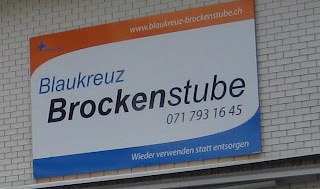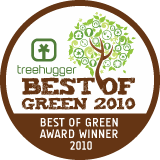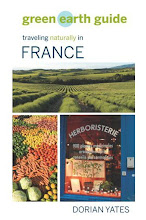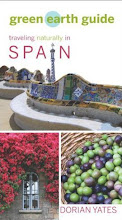
Couples looking for a honeymoon that includes a combination of ecological conscience, culture, beauty and romantic atmosphere can find numerous opportunities in Spain. In the southwestern part of the country there exists a magical area famous for “white villages” and deep history.
The towns of Gaucin and Cortes de la Frontera lay about twelve miles across a valley from each other, each featuring unusual, ecological accommodations. Andalucia Yurts in Gaucin and Hoopoe Yurts in Cortes de las Frontera are rural oases, offering rustic but comfortable solar-powered lodging in hand-crafted yurts – canvas covered round wooden structures traditionally used by nomadic peoples in Mongolia and Turkey.
For a non rustic experience, honeymooners can stay at one of the Parador Hotels. Run by the Spanish government these are luxury hotels in restored palaces, castles, monasteries and other historical buildings as well as some modern structures. Paradors in this area of Spain housed in restored buildings include the Parador Arcos de la Frontera/ Hotel Casa del Corregidor, in a former palace; Parador Hotel Ronda – with views of the Tagus Gorge- in the former Town Hall; and the Parador Carmona/Hotel Alcazar del Rey Don Pedro in a renovated 14th century Arabic Fortress east of Seville.
Andalucia Yurts has two Moroccan style yurts each large enough to sleep up to five people making them spacious choices for honeymooning couples. The yurts are situated amongst orange groves in a fairly remote mountainous area near the pristine Genal River. Kit and Penny Hogg run the bed and breakfast serving homemade and local foods for breakfast. You can dine on one of the terraces or outside under a canopy. Kit and Penny pride themselves on being able to accommodate special diet needs and tend towards a mix of Andalucian and Moroccan menus for their dinner fare. There is a wood-fired sauna and various wellness therapies including massage and yoga are available. There is a swimming hole in the river on the property, as well as a eucalyptus-wood and stone lined outdoor shower.
Hoopoe Yurts is about a twenty-minute walk from the white village of Cortes de la Frontera, and is about a half an hour drive from the famous white town of Ronda. Hoopoe has five yurts each in their own private acre of land and each furnished as a double room with different colors and woods, and Mongolian-style furniture and textiles. The yurts all have private bathrooms and the complementary olive oil soap is especially made for Hoopoe. Four nights a week Hoopoe offers dinner made with their own or locally produced products. Breakfast includes local honey and fresh fruit. They also offer pack-lunches for picnics and have a bar open until 11:00 at night. There is a pool, and yoga, massage as well as other wellness therapies are available.
The town of Gaucin, filled with tile-roofed white houses, is home to a tenth century Moorish fortress, Castillo del Aguila, which sits atop a cliff offering amazing views on clear days all the way to Africa, where you can see the “Pillars of Hercules” (The Rock of Gibraltar and Jebel Musa in Northern Africa) and the Atlas Mountains in Morocco.
Gaucin is home to a number of
artists whose studios you can visit.
Eco Tienda Pura Vida, sells natural and organic food, as well as having a little café serving breakfast and lunch with freshly made organic, vegetarian tapas and raw dishes available, as well as fresh fruit juices and shakes. The
local Mercado (market) is open 9:30 am to 1:30 pm with some stalls selling organic vegetables and free-range eggs. Calle Convento has a few excellent food stores besides Pura Vida including
Carniceria Candida, where you can find local meats and the
Boníssim Delicatessen selling local and international gourmet products with fresh daily baked artisan breads and pastries, and roast chickens from free-range birds.
Cortes de la Frontera sits in between two natural parks surrounded by cork trees (alcornocales) and is a larger town than Gaucin. With its proximity to the natural parks it makes an ideal area for walking. The Llanos de Líbar is a walking route on the edge of the Sierra de Grazalema Natural Park. It is almost twelve miles long if walked in its entirety, across the flood plain (llano) of the Guadiaro River. Birdwatching is another favorite activity in this area as numerous species can be found in the region.
The famous white town of Ronda sits amidst the mountainous area called the Serrania de Ronda and is perched three hundred feet above the El Tajo gorge. Ronda offers incredible views and is full of cobble-stoned streets and monuments like the Palacio Mondragón, a 12th century Moorish Palace.
History loving honeymooners will be impressed with the cave-viewing possibilities in this part of Spain. The Cueva de la Pileta in Benaojan, west of Ronda, in the Sierra of Grazalema Natural Park, has ancient ochre and charcoal cave paintings as well as natural cave formations that take an hour to tour with your guide, usually one of the descendants of the farmer who discovered the cave. Protected by the government, the cave is still owned by the local farming family who owns the land. Unfortunately cameras are not allowed. The Cueva de Ardales in Ardales, about fifty-five miles from Gaucin, contains Paleolithic and later cave drawings which can be viewed during the almost one mile walk through the cave. The Cueva del Gato, near Benaojan, is a rock pool where icy water pours from an underground river providing refreshing relief from the summer heat.
With plenty to see, delicious local foods, old world charm, and romantic, eco-minded lodgings it is easy to enjoy a wonderful honeymoon with an environmental conscience.
The Details:
Andalucia Yurts, La Huerta, Gaucin, Andalucia; Tel: (34) 952 117 486 (Evenings & Weekends) or Cell: (34) 686 888 409; Email:
hoggs@vsatmail.com; Web:
www.andaluciayurts.com. 35 euros a night per person for accommodation and breakfast. Additional 20 euros for dinner.
The Hoopoe Yurt Hotel, Ed & Henrietta Hunt, Apartado de Correos 23, Cortes de la Frontera, 29380 (Málaga), Spain; Tel: (34) 696 668 388; Cell: (34) 660 668 241; Web:
http://yurthotel.com; open May 1st to October 16th. Price: 136 euros/night/double – no kids nor pets – Stays start Wednesdays or Saturdays.
If you want to travel by public transport and not rent a car you can fly into Malaga and then take a bus to Gaucin or Cortes de la Frontera and have either hotel pick you up (arrange in advance). Or you can fly to the Gibraltar airport. Walk out of the airport and across the border (about a tenth of a mile), then take a taxi to San Roque (10 to 15 minutes) and then take the train to Cortes de la Frontera (50 minutes) where either hotel could pick you up (again arrange in advance).
Parador Hotels, Prices for the Paradors run between 160 to 275 euros per room per night depending upon the season and room type. Web:
www.paradores-spain.com
Gaucin: Castillo de Aguila is open every day from: 10:00 am to 2:00pm/ 4:30 to 7:30 pm.
Eco Tienda Pura Vida, calle Convento 166, Gaucin; Tel: 952 151 369; Web:
www.ecotiendapuravida.es/indexeng.html; open Monday from 10:00 am to 3:00pm, Tuesday to Friday from 10:00 am to 3:00pm/5:00 to 8:00pm, and Saturday from 10:00 am to 3:00pm. Café is open Tuesday to Saturday from 9:00 am to 3:00pm.
Boníssim Delicatessen, calle Convento 54; Tel: 951 16 89 41; Open Thursdays through Sundays from 10:00 am to 2:30pm/5:30 to 9:30 pm. June through September the store is also open on Mondays.
Cueva de Ardales, Web:
http://www.cuevadeardales.com/indicees.htm
































